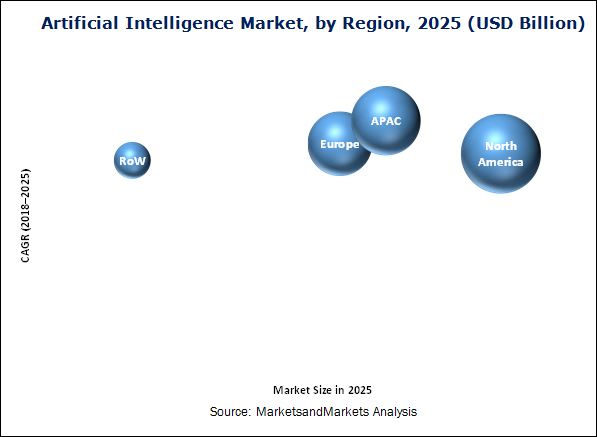According to the new research report "Compound Semiconductor Market
by Type (GaN, GaAs, InP, SiGe, SiC, GaP), P roduct (LED, RF,
Optoelectronics, Power Electronics), Application (Telecommunications,
General Lighting, Military & Defense, Datacom, Automotive),
Geography - Global Forecast to 2024", The compound
semiconductor market is expected to grow from USD 37.2 billion in 2019
to USD 53.0 billion by 2024, at a compound annual growth rate (CAGR) of
7.3%. Increasing adoption of compound semiconductors, including GaN,
GaAs, and InP, is expected to drive the growth of the compound
semiconductor market during the forecast period.
• Download Informational PDF Brochure :-
https://www.marketsandmarkets.com/pdfdownloadNew.asp?id=178858112
• Download Informational PDF Brochure :-
https://www.marketsandmarkets.com/pdfdownloadNew.asp?id=178858112
Browse 64 market data Tables and 64 Figures spread through 178 Pages and in-depth TOC on "Compound Semiconductor Market"
GaN to be largest contributor in compound semiconductor market during forecast period
Gallium
nitride (GaN) is among the most prominent compound semiconductor
materials. It is an alternative material to pure silicon in the field of
semiconductors and electronics. GaN is a high electron mobility
transistor (HEMT) semiconductor, which is expected to usher in new power
devices that are superior to current Si-based MOSFETs. Owing to its
abilities to emit UV and visible light, as well as the ability to
tolerate high temperatures and voltages, GaN is used in lighting and
power transistor applications.Some of advantages of GaN include: It
offers high power density and superior thermal conductivity; it can
operate at higher voltages due to high voltage breakdown; GaN devices
can deliver much high current density; it can be used for 5G mmwave
applications due to high frequency and high efficiency; It can be cost
effective for some applications if it is made of silicon substrate. GaN
finds applications in LEDs, optoelectronics, RF, and power electronics.
LEDs contribute to the largest share of the GaN market. RF and power
electronics segments are expected to grow at faster rates for GaN
compared to LED segment. Deployment of 5G networks, will bring a huge
opportunity for GaN devices during the forecast period. GaN devices are
able to deliver the power or efficiency level required for next
generation high frequency telecom networks
Based on product type, LEDs to account for largest market during forecast period
LED is a major shareholder of the compound semiconductor market.
Various compound semiconductors are used to manufacture LEDs; GaN is
mainly used for manufacturing white LEDs. GaN LED can be made on
substrate sapphire, SiC or silicon. GaN on Si LEDs are gaining traction
in the compound semiconductor market. Sapphire is majorly used substrate
for LEDs. SiC substrates are very expensive and silicon is a very
common substrate in the semiconductor industry, and the costs are much
lower than either sapphire or SiC. Hence market for GaN on silicon LED
expected to grow at a very high rate in coming years compared to other
substrates. Various developments by players for GaN on silicon LED would
also help to grow the compound semiconductor market. Automotive is
fastest growing application of LED. Improved LED performance, lower
power consumption, and flexible design and cost reductions helped LED
technology to spread to all vehicle categories which was earlier limited
to premium vehicles
Based on Application, automotive to grow at highest CAGR during the forecast period
Automotive
is the fastest-growing application due to adoption of compound
semiconductor (GaN and SiC) based power devices in segments such as
charging infrastructure and EV/HEV. SiC-based power devices can operate
at higher temperatures with higher thermal conductivity, higher
breakdown voltage at lower on-stage resistance, faster switching speed,
lower conduction, and switching on-state loss. GaN is also gaining
importance in power electronics.
APAC to grow at highest CAGR during forecast period
Major
players, such as Nichia (Japan), Samsung Electronics (South Korea),
Mitsubishi Electric (Japan), and other providers, have their presence in
APAC and are expected to dominate the compound semiconductor market.
LEDs are expected to dominate the overall compound semiconductor market
owing to the high adoption in lighting applications in APAC. China and
Japan are leading countries for consumption of LEDs; however, developing
countries in APAC are also expected to exhibit potential during the
forecast period. Automotive lighting is the fastest growing application
of the LED market. Telecommunications is among the most important
applications of market in APAC. The market is driven by increasing
adoption of compound semiconductor in telecom infrastructure as well as
in devices such as smartphones. Increasing adoption of LTE and 5G
networks is expected to provide opportunities during the forecast
period. Countries such as China, Japan, and South Korea are focusing on
wide adoption of 5G technology, which would further provide
opportunities for compound semiconductors, particularly for base station
infrastructure. Currently, GaAs heavily dominates the telecom market;
however, GaN technology also has the potential that results in high
adoption of GaN in the telecommunications industry during the forecast
period. Power supply and automotive are among fastest growing
applications in APAC. Rising adoption of compound semiconductor
materials for power devices is major factor for the growth of compound
semiconductor market. GaN and SiC devices allow users to operate in the
double-conversion mode and maintain high efficiencies. Using these
devices in UPS can facilitate in size reduction, increase in power
quality, and reduction in cost.
About MarketsandMarkets™
MarketsandMarkets™
provides quantified B2B research on 30,000 high growth niche
opportunities/threats which will impact 70% to 80% of worldwide
companies’ revenues. Currently servicing 7500 customers worldwide
including 80% of global Fortune 1000 companies as clients. Almost 75,000
top officers across eight industries worldwide approach
MarketsandMarkets™ for their painpoints around revenues decisions.
Contact:Mr. Shelly Singh
MarketsandMarkets™ INC.
630 Dundee Road
Suite 430
Northbrook, IL 60062
USA : 1-888-600-6441
newsletter@marketsandmarkets.com
